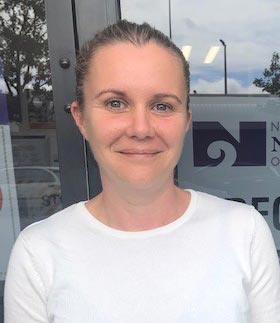
One-off payments don’t cut it – we want a real pay rise and safe staffing. That’s the message from nurses and other NZNO members to the Government and district health boards (DHBs), after a resounding rejection of a second offer under the DHB-NZNO multi-employer collective agreement (MECA) negotiations.
South Canterbury District Health Board organiser Stephanie Duncan said the Government’s plans to freeze public service pay salaries over $60,000 for three years, announced last month, had been “really upsetting” and pushed many over the edge.
“The wage freeze had a definite impact, on top of how the workforce was already feeling from COVID-19,” Duncan said. “We have been given so much support from people over the past year and told by the Government how vital we are… so hearing about their plans for a public service pay freeze was really upsetting.”
In May, Public Service Minister Chris Hipkins announced an extension of an effective pay freeze for people earning more than $60,000 in the public sector. This would include nurses, and would be reviewed in 2023.
Nurses and members felt “strong, committed and excited” about the strike. “We want to push forward – we want to make some progress towards a pay rise,” Duncan said.

NZNO lead advocate David Wait said the clarity of nurses’ response was a “warning” to DHBs that a one-off payment wouldn’t cut it and a “genuine offer” was needed over staffing and pay.
“I think it’s a warning that the DHBs should heed – they need to make a genuine offer to bridge the gap and a lump sum payment clearly isn’t that,” he said. “Our members have been told for a number of years that staffing levels will be fixed, that their pay will be addressed through pay equity… but neither of those have eventuated and they’re long overdue.”
‘Enraged’ over offer
The revised DHB offer included a $4000 lump sum “advance” on pay equity claim work underway. But the offer still only amounted to a 1.38 per cent annualised increase for registered nurses (RNs) on the top end of the scale.
“Because it’s not increasing those rates of pay, it doesn’t do anything for making the occupation more attractive or entice people back from overseas or who have left, or doesn’t stop nurses wanting to leave.”
Hutt Valley DHB delegate Julie Pritchard told Kai Tiaki Nursing New Zealand members who might have been sitting on the fence before, were enraged by the second offer.
“We are very angry that the pay equity is being made an issue in this, when it’s a completely separate thing.”
“In my department, we are not happy. We are very angry that the pay equity is being made an issue in this, when it’s a completely separate thing.”
What members wanted was a meaningful pay rise and safer daily staffing levels, she said.
West Coast DHB delegate and nurse manager Nelly Hofman said staff felt united and determined, and had been delivering leaflets and preparing hats for weeks in preparation.
“We’re full-on, we’re going, we can’t keep anyone away – we’re going on strike!”
Waikato not exempt
Hamilton organiser Jenny Chapman said members had decided to go ahead with the strike, despite a request from Waikato DHB to be exempt due to the hack of their IT systems.
“The delegates and the organising staff met together and the delegates were quite clear: they’d talked with quite a number of members before the meeting, and it was quite a significant majority who really wanted to continue with the action. They felt it was important to be part of a national strike. They felt as though they’d let some of the team down if they didn’t participate.”
NZNO acting manager, professional and nursing services, Kate Weston said the public salary freeze “incensed” members, along with an offer of a lump sum “they were going to get anyway” [under Fair Pay agreements], causing voting to spike.
NZNO also wanted DHBs to pay penalty rates when nurses were forced to work in environments which did not meet agreed safe staffing targets, Wait said.
However DHBs had “refused to engage” on this.



